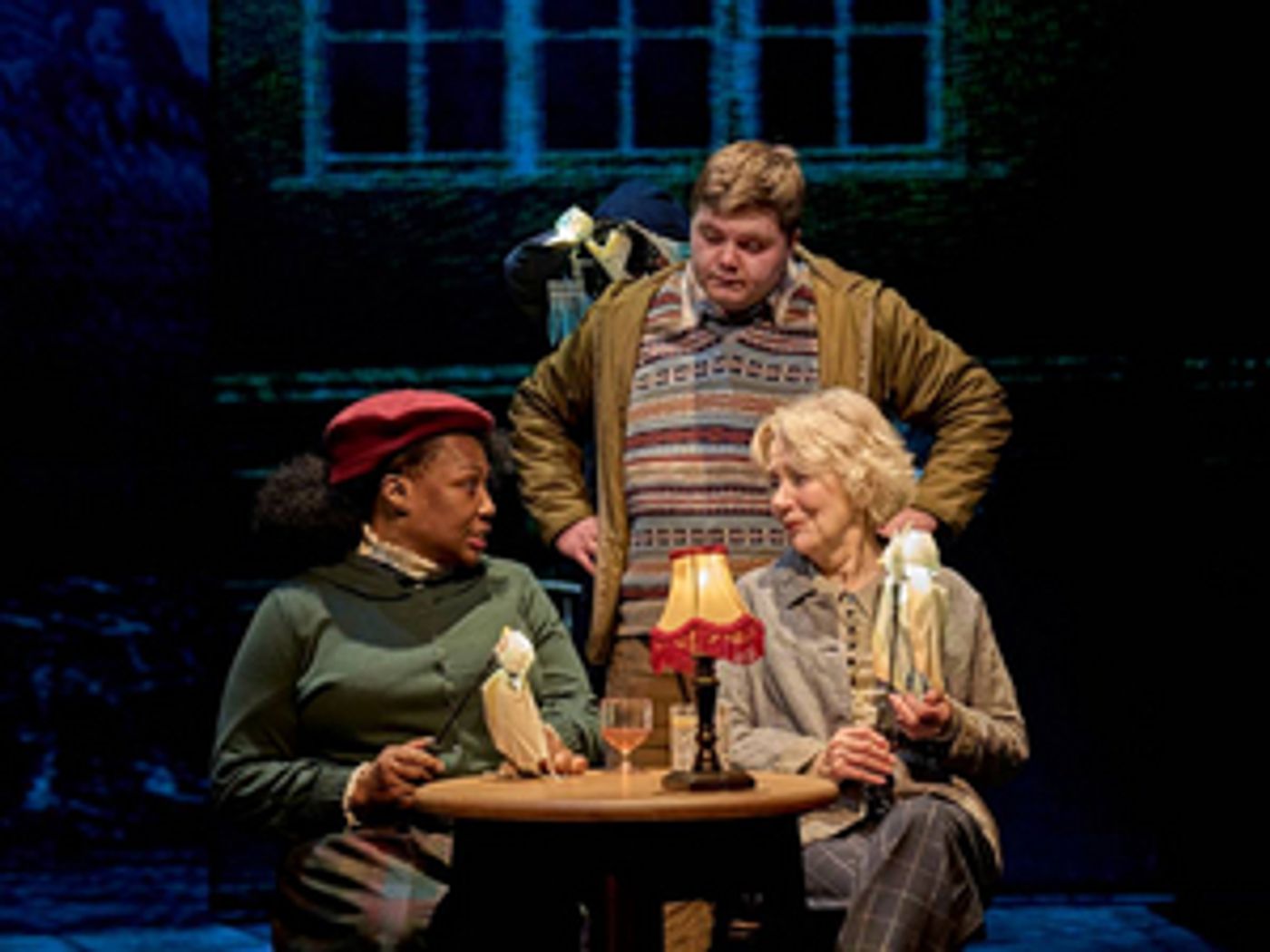Review: THE BOOK OF DUST - LA BELLE SAUVAGE, Bridge Theatre
His Dark Materials' heroine, Lyra Belacqua , gets her origin story

![]() A boy, 12 years old and already coping with a body too big for current requirements, tells us about his world, one like ours, but not ours; one of personal animal dæmons; one stalked by a powerful fundamentalist Christian sect. It's familiar to anyone who has read the books or seen the earlier film, television or stage adaptations of Philip Pullman's His Dark Materials novels, but this universe can still repeatedly knock you off-centre with its jarring mix of mystical and mundane.
A boy, 12 years old and already coping with a body too big for current requirements, tells us about his world, one like ours, but not ours; one of personal animal dæmons; one stalked by a powerful fundamentalist Christian sect. It's familiar to anyone who has read the books or seen the earlier film, television or stage adaptations of Philip Pullman's His Dark Materials novels, but this universe can still repeatedly knock you off-centre with its jarring mix of mystical and mundane.
The boy is Malcolm, bright and resourceful, played with wit and charm on professional debut by Samuel Creasey, who has more than a touch of History Boys era James Corden in him. He does a lot of the heavy lifting early on, as slabs of exposition establish what is surely known by most of the audience - such is, I suppose, unavoidable.
But we're soon into the story proper, as he encounters the mysterious and threatening Mrs Coulter (Ayesha Dharker just about avoiding the evil stepmother template), the dashing Lord Asriel (John Light) and the good-hearted nuns who passively resist the quasi-fascist Magisterium with its secret police and atavistic fear of a prophecy.
Lyra Belacqua lies at the heart of that prophesy and, if it is to be believed, also lies at the heart of the future of the planet itself, and, though just a baby (sometimes a real, very beautiful one, too), is enough of a threat to warrant a ruthless pursuit by the Magisterium's agents. But Malcolm and the equally bright and resourceful teen, Alice (Ella Dacres, all down to earth nous) shelter the child and, eventually, bring her to a safe place.
There lies the major flaw with Bryony Lavery's adaptation. Pullman may well refer to his 2017 book as an 'equel' rather than a prequel, but it's actually an example of a growing genre - the origin story. For all the tension built up as our heroes battle with floods, scientists of dubious morality and paramilitary gunmen, we know that Lyra makes it because, 12 years later, she's on her way to fulfilling the prophesy. As with all origin stories, where there should be heartstopping jeopardy, there's merely a shrug of the shoulders.
Inevitably, Malcolm and Alice progress from bickering kids something approaching a fumbling first romance, though the fact that we can see that both actors are in their 20s undermines that somewhat hackneyed subplot. Far more interesting is their interplay with dæmons, beautifully realised by Barnaby Dixon as lit up paper puppets that the actors animate and which present each character's true soul for others to see, if not understand. Initially, they feel intrusive, but we soon notice them only when director, Nicholas Hytner, wants us to see them and are all the more powerful for it.
Video also plays a big role in the otherness of Malcolm's environment, Luke Halls' projections creating a watery, dark and dangerous Oxford one moment, and a cold, Dickensian orphanage the next. As with the dæmons, it would be easy to overdo their impact, but they complement rather than overpower the story.
At two and a half hours, that story is stretched too thin to engage us as fully as we ought to be, the religious hokum and philosophical asides also muddying what is a fairly straightforward quest tale. For those (and there will be plenty) brought up on Star Wars and The Lord Of The Rings, that might be enough, but, as was the case for me when I read the original trilogy, the bells and whistles couldn't compensate for a plot that held too few surprises.
The Book Of Dust - La Belle Sauvage is at the Bridge Theatre until 26 February
Photo Manuel Harlan
Reader Reviews
Videos

